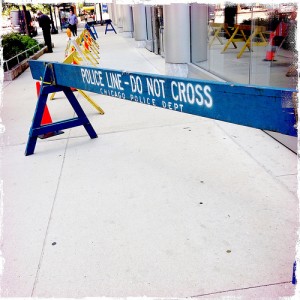Monday Morning Review: Local Governments in the Federal Appellate Courts
Posted
07 Jul 2014 in Monday Morning Review
Here are last week's published decisions involving local governments: Sixth Circuit
Hescott v. City of Saginaw, No. 13-2103 (July 2, 2014) (ruling that district court erred denying attorney's fees to Hescotts in their successful 1983 action claiming that the City had unconstitutionally seized their personal effects by demolishing their property).
Seventh Circuit
Scherr v. City of Chicago, No. 13-1992 (July 2, 2014) (affirming that 1983 suit against officer based on alleged Fourth-Amendment violation was properly dismissed).
Sixth Circuit
Hescott v. City of Saginaw, No. 13-2103 (July 2, 2014) (ruling that district court erred denying attorney's fees to Hescotts in their successful 1983 action claiming that the City had unconstitutionally seized their personal effects by demolishing their property).
Seventh Circuit
Scherr v. City of Chicago, No. 13-1992 (July 2, 2014) (affirming that 1983 suit against officer based on alleged Fourth-Amendment violation was properly dismissed).






 A local government can create a 35-foot buffer zone to restrict speech on a public street only if it has first made a serious effort to address the issue in other ways.
That's the lesson of
A local government can create a 35-foot buffer zone to restrict speech on a public street only if it has first made a serious effort to address the issue in other ways.
That's the lesson of 



